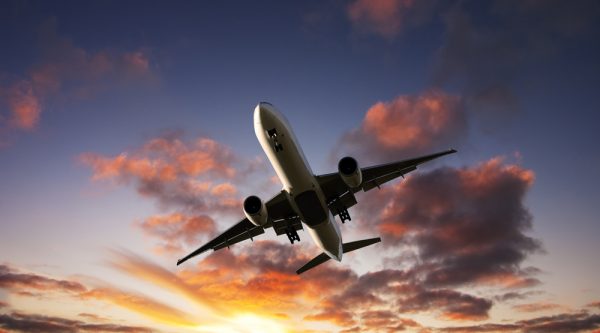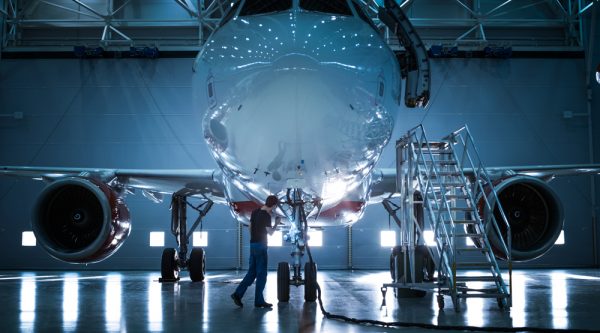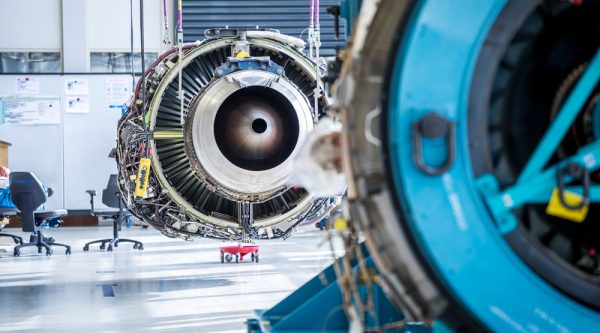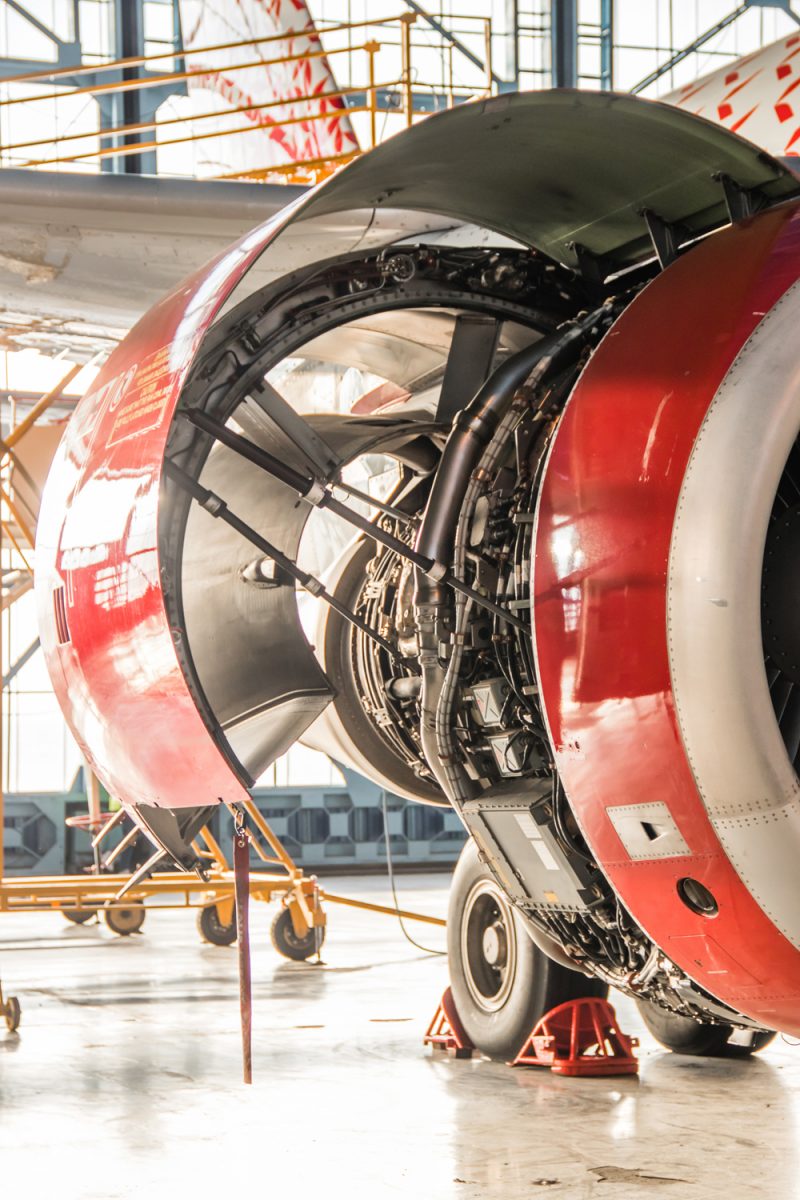
This site
is mobile
responsive

Malaysia’s aerospace industry is one of the rapidly growing industries in the country, energised by the implementation of the National Aerospace Industry Blueprint 2030. With over 230 companies involved in the maintenance, repair and overhaul (MRO), aero-manufacturing, education and training, systems integration, as well as engineering and design activities, the industry is growing at an average of 5% for the past ten years.
As of June 2019, the approved projects in the aerospace sub-sector recorded investments worth RM15.1 billion. Of these, foreign investments represented 71.1% or RM10.7 billion, while the remaining 28.9% were from domestic sources. These approved investments continue to generate highly skilled jobs and develop an ecosystem of suppliers in the country.
Some notable local aerospace companies which have established themselves as part of the global supply chain include UMW Aerospace, SME Aerospace, CTRM Aero Composite, Asia AeroTechnic and Airod. Malaysia is also home to supporting aerospace companies such as IAC Manufacturing, Asahi Aero Malaysia, Micron Concept Aerostructures and Morrissey Integrated Dynamics.
Cases in Point:
GKN Aerospace has set up their seventh Asian site and its first Engine Systems business in the region at Nusajaya Techpark, Johor with the support from the Government and MIDA. This aircraft engine components repair facility not only specialises in servicing engines with low-pressure compressor (LPC) components but also houses a research centre focused on the application of additive manufacturing (3D-printing) technology in engine parts repair.
Boss Aerosystem Sdn. Bhd., a wholly-owned Malaysian manufacturer and fabricator of aerospace component, expanded its operation in Bukit Minyak Industrial Park, Pulau Pinang.
With over 30 years of experiences in the industry, the company provides a one-stop manufacturing solution to all aerospace original equipment manufacturers (OEMs) in the region. Its capabilities include sheet metal forming, CNC machining, heat treatment, non-destructive testing inspections (NDT) and prime paint shop.
Additionally, Airbus Helicopters displayed their commitment with Malaysia as they set up their regional hub for helicopter completion and delivery, MRO and full flight simulation training in April this year, after having 15 years of presence in the country. As a leader in Malaysia’s rotorcraft segment, the company is expected to contribute to thedevelopment of the helicopter industry in Malaysia and leverage on their competency locally.

It has over 100 civil and military helicopters in service in the country. Malaysia represents one of the most important strategic markets for Airbus Helicopters with about 50% market share for rotorcraft locally.
Airbus SE also announced new investments in the country, comprising three initiatives worth over US$120 million (RM505 million) that would support and further develop the growing aerospace industry. The initiatives include the expansion of the company’s wholly-owned MRO facility – Sepang Aircraft Engineering (SAE); the establishment of the Airbus Malaysia Digital Initiative; and an increase in its participation in the Aerospace Malaysia Innovation Centre (AMIC).
Facilitating the Industry Ahead
Undoubtedly, Malaysia aims to be the preferred global aerospace outsourcing centre, particularly for OEM and Tier-1 aerospace companies. MIDA’s various facilitation includes the offering of corporate tax exemption, import duty exemption on machinery, equipment and components as well as funding assistance on training for Malaysian employees.
Malaysia offers comprehensive infrastructure for industry players. At present, the country has several aerospace parks namely, Subang Aerotech Park, KLIA Aeropolis, UMW High-Value Manufacturing Park, Senai Airport Aviation Park, Nusajaya Tech Park and Kulim Hi-Tech Park. These parks provide investors with a choice of ready-built facilities or land plots for customised developments to ease the realisation of investments within the country.
In addition, MIDA has continually been a proponent of supply chain initiatives. For example, MIDA organised an Industrial Linkages Programme on aerospace in Turkey last year to enable local companies to explore business and investment opportunities through strategic partnerships and joint ventures. The programme was participated by nine Malaysian companies that seek to adopt best practices and be competitive in the global business landscape. More of such events for aerospace stakeholders will be organised in the future.

Gearing for the Future
Based on a study by the Ministry of International Trade and Industry (MITI) in 2017, the Malaysian aerospace industry labour force comprises of 3,695 employees in composites, 2,710 employees in manufacturing, 1,470 employees in avionics and 269 employees in special processing that supports the industry. These numbers have been consistently growing, and the demand for qualified workforce in the industry has not gone unnoticed.
Malaysia recognises the need to have skilled workforce in establishing a strong aerospace supply chain within the country. Hence, MIDA continues to encourage human capital development efforts by creating links between the industry and academia.
Currently, Malaysia has more than 30 institutions that offer related aviation course for diploma and degree levels at their campuses to suit the industry’s needs as well as to produce industry-ready graduates for the industry.
This includes Universiti Putra Malaysia, Universiti Sains Malaysia, UniKL, International Islamic University Malaysia, Universiti Tun Hussein Onn Malaysia and Universiti Teknologi Malaysia.
Several local training institutions such as the Advanced Composite Training Centre (ACTC) at UniKL –Malaysia Institute of Aviation Technology, Malaysian Aviation Training Academy, Advanced Aeronautics Technology Centre and Aero Precision Resources have also embarked on aerospace-related training activities. These centres aim to fill up the industry ranks with the necessary trained and skilled workers.
Moving Forward
The Malaysian aerospace industry is moving into new milestones to keep pace with global innovation and demands. The country has all the necessary ingredients to be an important player in the international market, and become the leading aerospace nation in the region. With continuous facilitation by the Government, together with the strong will and commitment on the part of local companies, Malaysia is set to accelerate its local supply chain development and bringing more advanced technology to the country.
